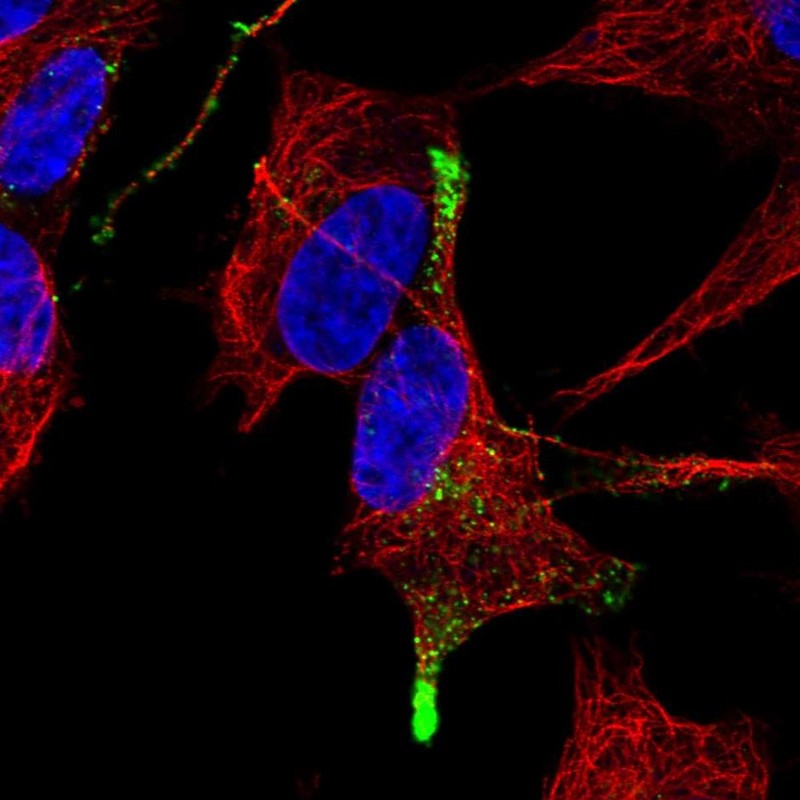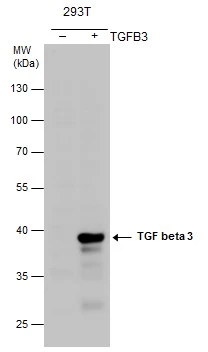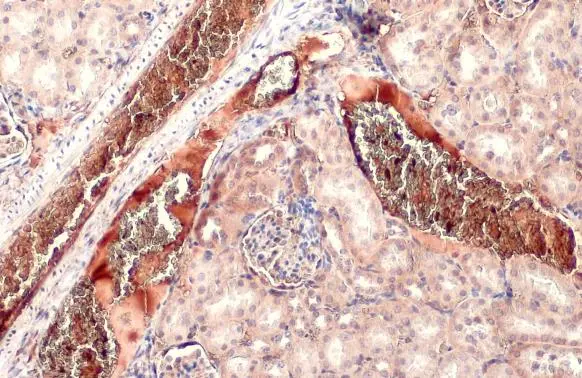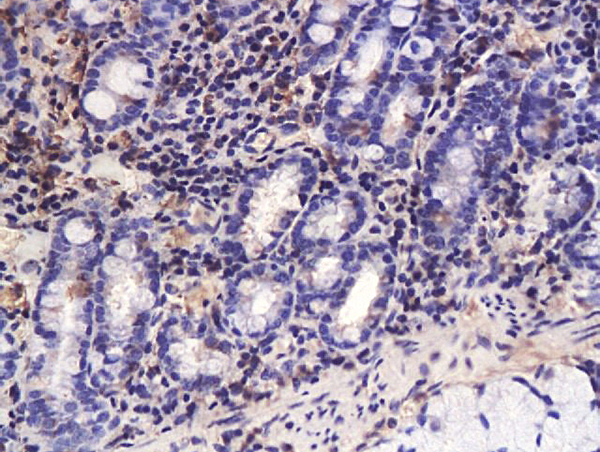TGF beta 3 antibody
GTX15537
ApplicationsImmunoPrecipitation, Western Blot, ImmunoHistoChemistry, ImmunoHistoChemistry Paraffin
Product group Antibodies
ReactivityHuman, Mouse, Rat
TargetTGFB3
Overview
- SupplierGeneTex
- Product NameTGF beta 3 antibody
- Delivery Days Customer9
- Application Supplier NoteIHC-P: Use at a dilution of 1/100 for 10 minutes at RT. Staining of formalin-fixed tissues requires boiling tissue sections in 10mM citrate buffer, pH 6.0 for 10 minutes followed by cooling at RT for 20 minutes. GTX15537 demonstrates cytoplasmic staining. IP: Use at an assay dependent dilution. WB: Use at an assay dependent dilution. Predicted molecular weight: 47 kDa. Optimal dilutions/concentrations should be determined by the end user.
- ApplicationsImmunoPrecipitation, Western Blot, ImmunoHistoChemistry, ImmunoHistoChemistry Paraffin
- CertificationResearch Use Only
- ClonalityPolyclonal
- Concentration0.2 mg/ml
- ConjugateUnconjugated
- Gene ID7043
- Target nameTGFB3
- Target descriptiontransforming growth factor beta 3
- Target synonymsARVD, ARVD1, LDS5, RNHF, TGF-beta3, transforming growth factor beta-3 proprotein, prepro-transforming growth factor beta-3
- HostRabbit
- IsotypeIgG
- Protein IDP10600
- Protein NameTransforming growth factor beta-3 proprotein
- Scientific DescriptionThis gene encodes a secreted ligand of the TGF-beta (transforming growth factor-beta) superfamily of proteins. Ligands of this family bind various TGF-beta receptors leading to recruitment and activation of SMAD family transcription factors that regulate gene expression. The encoded preproprotein is proteolytically processed to generate a latency-associated peptide (LAP) and a mature peptide, and is found in either a latent form composed of a mature peptide homodimer, a LAP homodimer, and a latent TGF-beta binding protein, or in an active form consisting solely of the mature peptide homodimer. The mature peptide may also form heterodimers with other TGF-beta family members. This protein is involved in embryogenesis and cell differentiation, and may play a role in wound healing. Mutations in this gene are a cause of aortic aneurysms and dissections, as well as familial arrhythmogenic right ventricular dysplasia 1. [provided by RefSeq, Aug 2016]
- ReactivityHuman, Mouse, Rat
- Storage Instruction2°C to 8°C
- UNSPSC41116161







